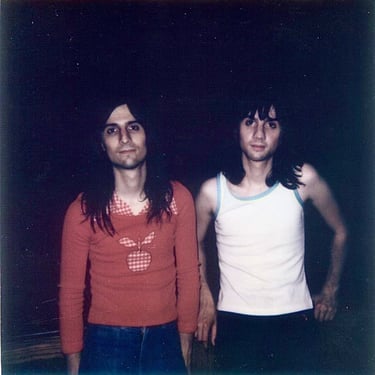Hailing from a hamlet nestled in the suburbs of Long Island, New York, it’s no mystery where siblings Brian and Michael D’Addario were first catapulted into the world of music. Following in the footsteps of their father Ronnie D’Addario, a songwriter and multi-instrumentalist in the 1970s and 1980s, the duo incorporates the sounds of their father’s era and combines it with the essence of their musical theater backgrounds— ultimately delivering a product that is unique to them alone. Their career has been nothing short of an awe-inspiring whirlwind, the pair’s vivid imaginations evident through their constant self-reinvention album by album. They’ve done it all; theatrical baroque pop, a rock opera and gaudy, leather-cladden glam, yet nothing seem to hold a candle to their fourth studio album, Everything Harmony.




